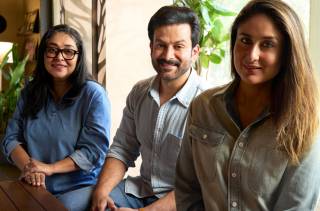
MUMBAI: Renowned Marathi actor Umesh Kamat, who recently appeared in the new season of the couple drama "Aani Kay Hava", says that Marathi actors have the advantage of exploring all the avenues of acting -- whether it is stage, TV, cinema or web shows -- as opposed to actors of other film industries like Bollywood and Tollywood.
"I think Marathi actors have more opportunity to explore different mediums of entertainment as opposed to other regional film actors. For instance, lead actors of Hindi, Tamil, or Malayalam cinema usually do not act in TV, theatre and web shows alongside mainstream cinema. But I, as an actor, have worked in all the mediums. That way, I think we are lucky. Our fans are ready to watch us on TV every day and will buy a ticket and go to the theatre to watch our films," Umesh told IANS.
"Aani Kay Hava" revolves around a married couple, Juhi and Saket, and the internal conversation of their relationships. The show also features Priya Bapat, Siddharth Jadhav and Sai Tamhankar.
The second season of the series released recently after a successful season one on MX Player. The actor says he is receiving a lot of responses not only from the Marathi audience but also across the nation, adding that a positive change is happening in the regional entertainment space, and the audience is expanding.
"With time, slowly but surely we will build the audience for digital content as well. Although initially, we used to think that only youngsters would watch these because they spending time on the phone, that is not true. I am surprised to see how the older generation is also watching regional content on digital platforms because of accessibility," said the actor, who has appeared in films like "Lagna Pahave Karun", "Time Please", "A Paying Ghost", "Asehi Ekada Vhave" and TV series like "Asambhav" and "Eka Lagnachi Dusri Goshta" among others.
Umesh added: "It is true that earlier as an audience even if I wanted, I could not get access to a Malayalam film as easily as I can get it now on OTT platforms. So, I think the language barrier is going away and regional content is really reaching out to people beyond regions and languages."

















Add new comment